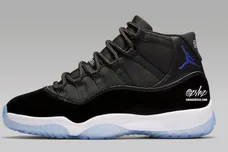The Blueprint remains one of the most influential rap albums ever. Over 20 years since its release, the record still appears on plenty of shortlists for the greatest rap album of all time. Inadvertently launching the career of Kanye West, Jay-Z brought soul-tinged songs back to the forefront of the radio culture of hip-hop. In doing so, The Blueprint revived sampling as a standard practice as we ran towards the digital sound era. Hailed by some as a rap G.O.A.T., The Blueprint shows off some of Jay-Z's best songs, such as "Heart of the City" and "Song Cry."
Newer fans of the Brooklyn outfit wouldn't know it, but Jay-Z was deeply struggling before releasing The Blueprint. While his debut Reasonable Doubt was an instant hit, he would back the album up with a collection of records that, while satisfactory, didn't quite live up to the expectations he set for his fans. Did he let the success get to him? Were his peak days as an MC over? These were genuine questions that fans were asking before the release of The Blueprint.
The Blueprint Released During Difficult Times

It wasn't only lackluster sessions in the studio causing strife in Jay-Z's life. There was the legal drama that threatened to derail his career. In December 1999, Jay-Z reportedly stabbed producer Lance "Un" Rivera for plagiarizing copies of his album. Additionally, several Jay-Z contemporaries had released classic albums within the past calendar year. Outkast released Stankonia, while Eminem dropped the Marshall Mathers LP. Eminem would appear on The Blueprint's most commercially successful track, "Renegade."
The timing of The Blueprint was anything but ideal. As his record was released to the public, the world watched in horrific awe as the Twin Towers fell in New York City. The music industry existed in a deep state of confusion and despondency as The Blueprint was released. However, his sixth album still sold 427,000 copies in its first week. If anything, the smoother soundscapes of The Blueprint acted as a vital form of therapy for struggling New Yorkers.
"The Blueprint" Changed the Sound of Hip-Hop Forever
From a sonic perspective, The Blueprint was a left turn from what fans had become accustomed to. Jay-Z worked with Kanye West and sought lesser-known producers to curate a unique sound. In many ways, The Blueprint would prove just as valuable for West as it would for Jay-Z. Producing five tracks off of the album, his contributions to lead single "Izzo (H.O.V.A)" and unapologetic diss track "Takeover" catapulted him into the limelight. Speaking of "Izzo (H.O.V.A)," the track's sonic mirroring to The College Dropout would be an obvious sign to the most casual of hip-hop fans.
Jay-Z sounded revived and hungry on The Blueprint. The Brooklyn-based MC reads as a man tired of hearing unfounded criticism about his name. With fans accusing him of not reaching the heights of Reasonable Doubt and fellow MCs such as Nas claiming they were the new kings of the New York scene, The Blueprint, in essence, was Jay-Z screaming out, "I'm back!" On "Hola Hovita," he stated, "If I ain't bigger than B.I.G / I'm the closest one." In "Heart of the City," he rapped, "People pray and pray on my downfall / But every time I hit the ground I bounce up like round ball."
Jay-Z's Vulnerability Resonated with Young Audiences
However, this bold confidence directly contrasted with Jay-Z's raw vulnerability. On one song, he's flexing his extensive car collection and high-rise New York apartment. In the next, he states, "Chains is cool to cop, but more important is lawyer fees." The overarching message of The Blueprint is for his listeners not to glamorize the lifestyle which he lives. Coming from a highly influential figure in African American circles, Jay-Z's decision to root his messaging in the cold concrete of reality had a lasting impact on his young and dedicated audience. In addition, the record was released when "the bling era" was still in full force. Essentially, Jay-Z's The Blueprint made vulnerability cool again.
"Song Cry" was a hallmark example of this harsh reality. With Jay-Z lamenting a lost relationship, he comes to the damning realization that his lavish lifestyle has clouded his common sense. He states, "You don't just pick up and leave and leave me sick like that / You don't throw away what we had just like that / I was f***ing them girls, I was gon' get right back." The self-deprecating lines silenced previous critics of the artist, who accused him of being an "unconvincing misogynist." Like his wife, Beyoncé, Jay-Z has always been emotionally guarded in the spotlight. Our only peek into his true psyche is through his music.
The Blueprint turning 20 years old was a stark reminder of how much our world has changed. After its release, Jay-Z would release several other classics such as The Black Album and American Gangster. Now hailed "the GOAT' by many, The Blueprint was a revival of sorts for Jay-Z, which saw him re-assume the role as King of New York. However, it did more than re-solidify Jay-Z's status. Even more importantly, it re-directed hip-hop towards a place of vulnerability and sustainability rather than opulent luxury.
[via]









